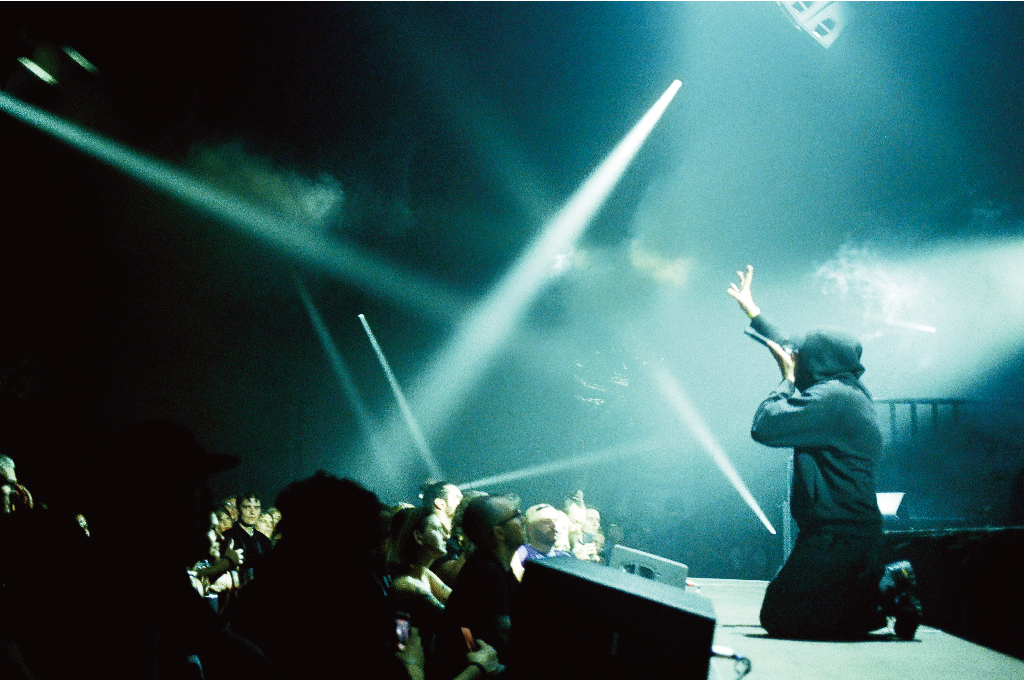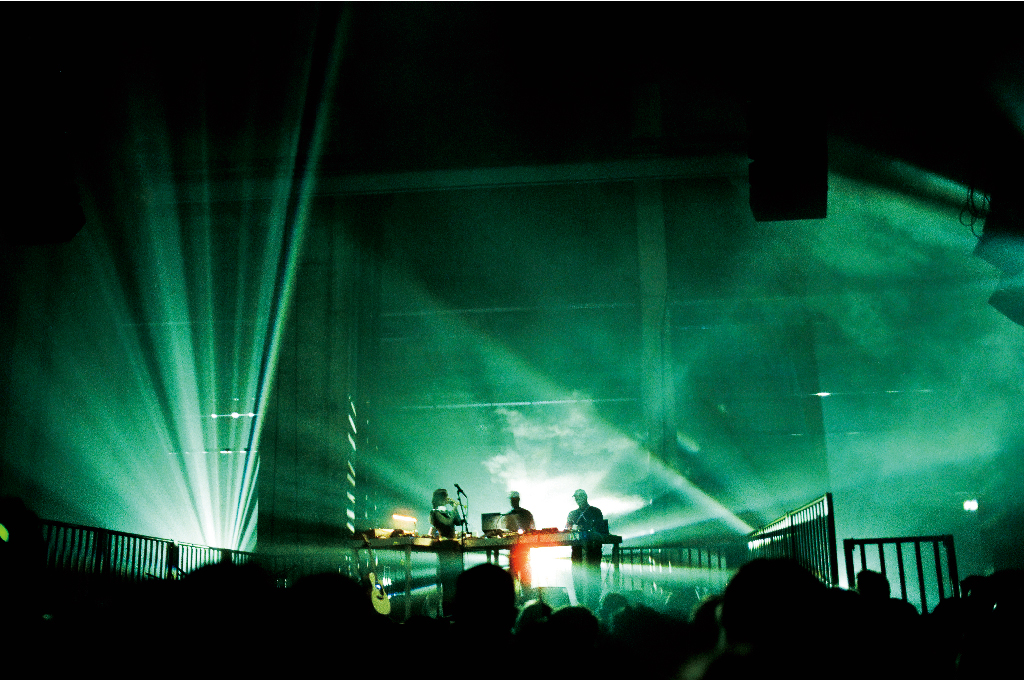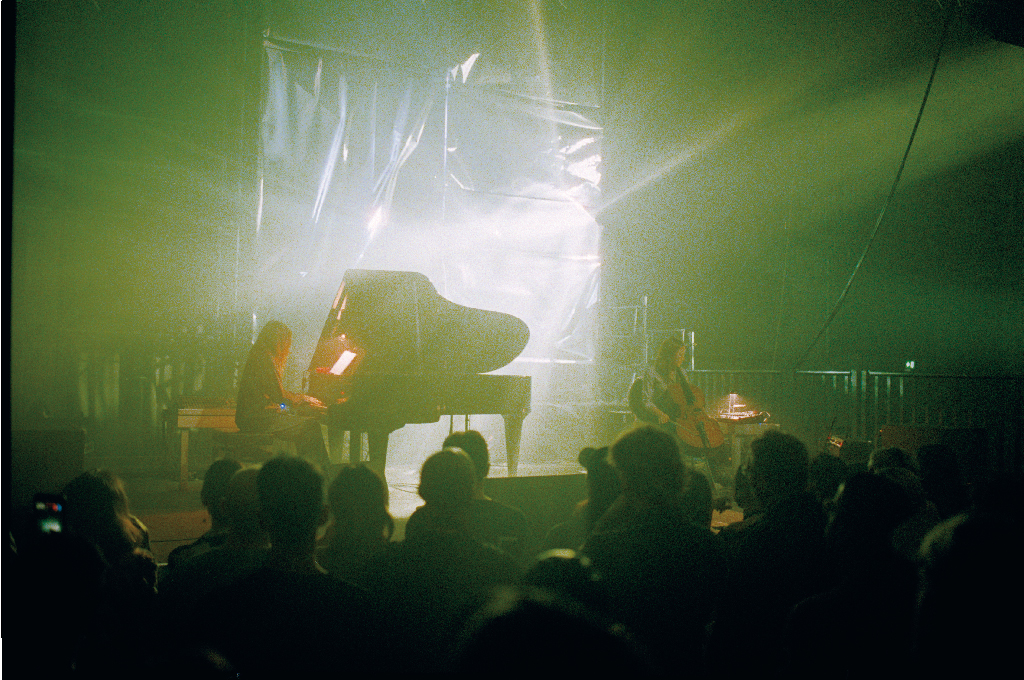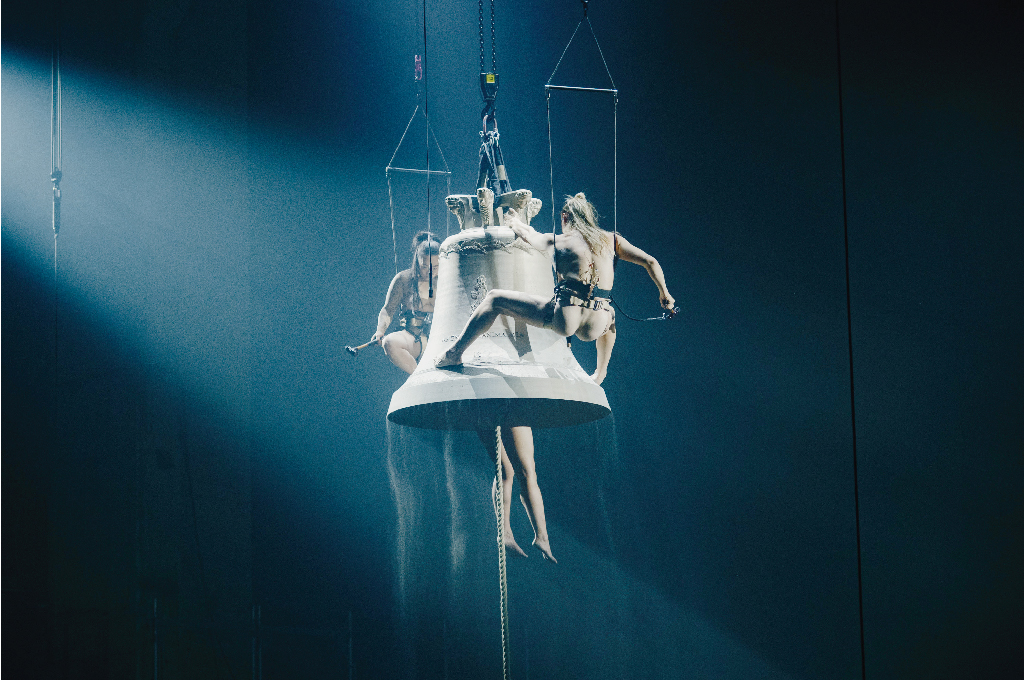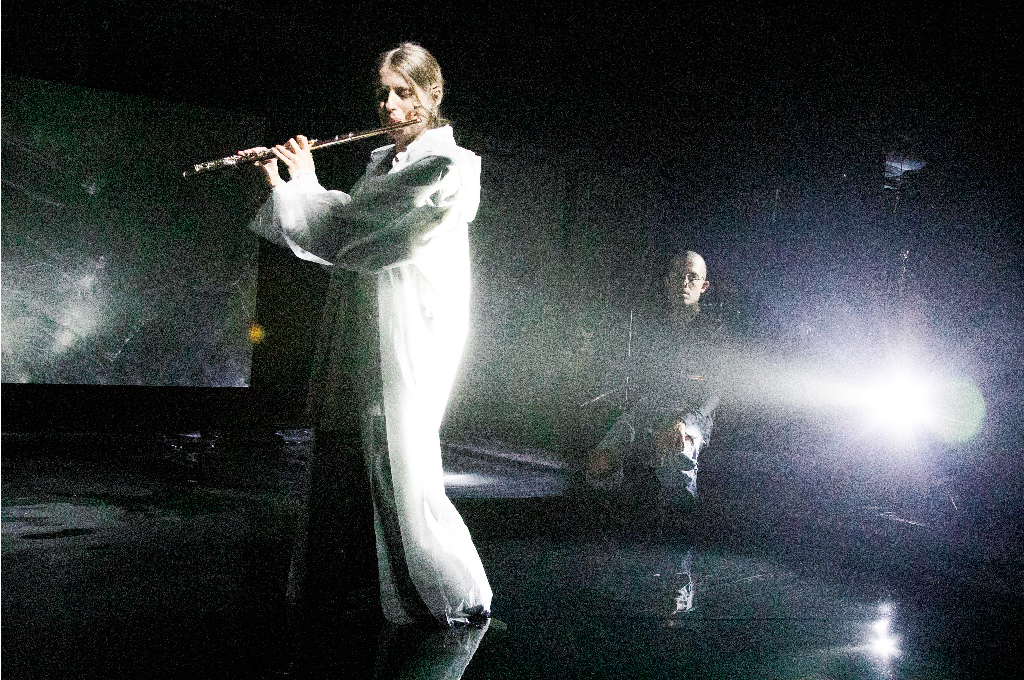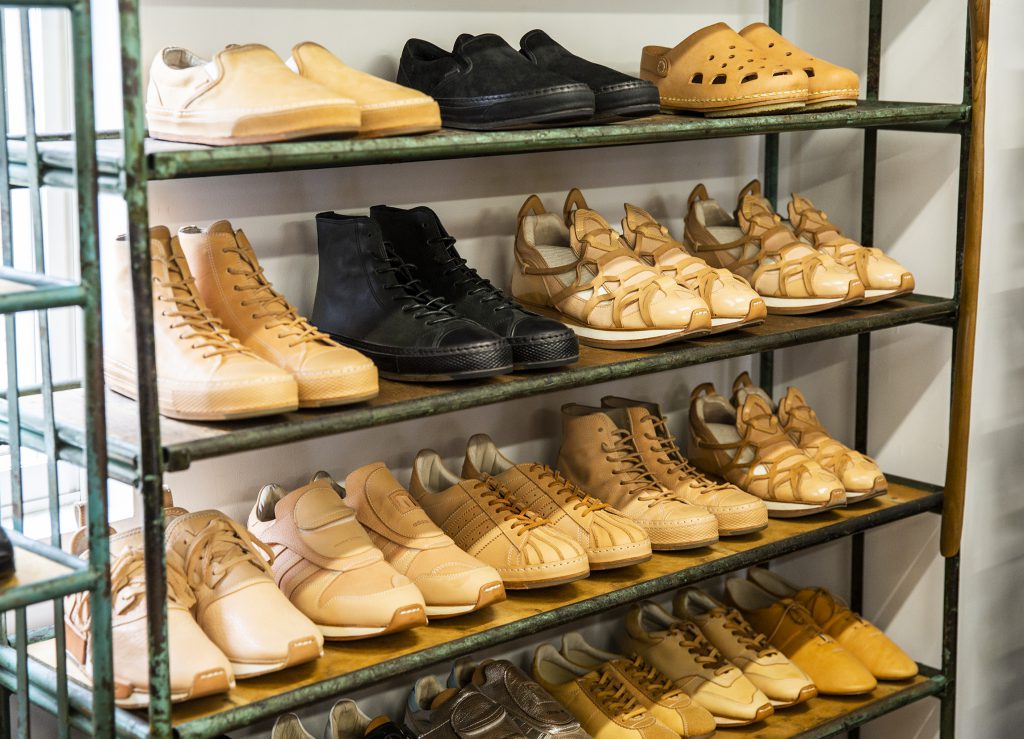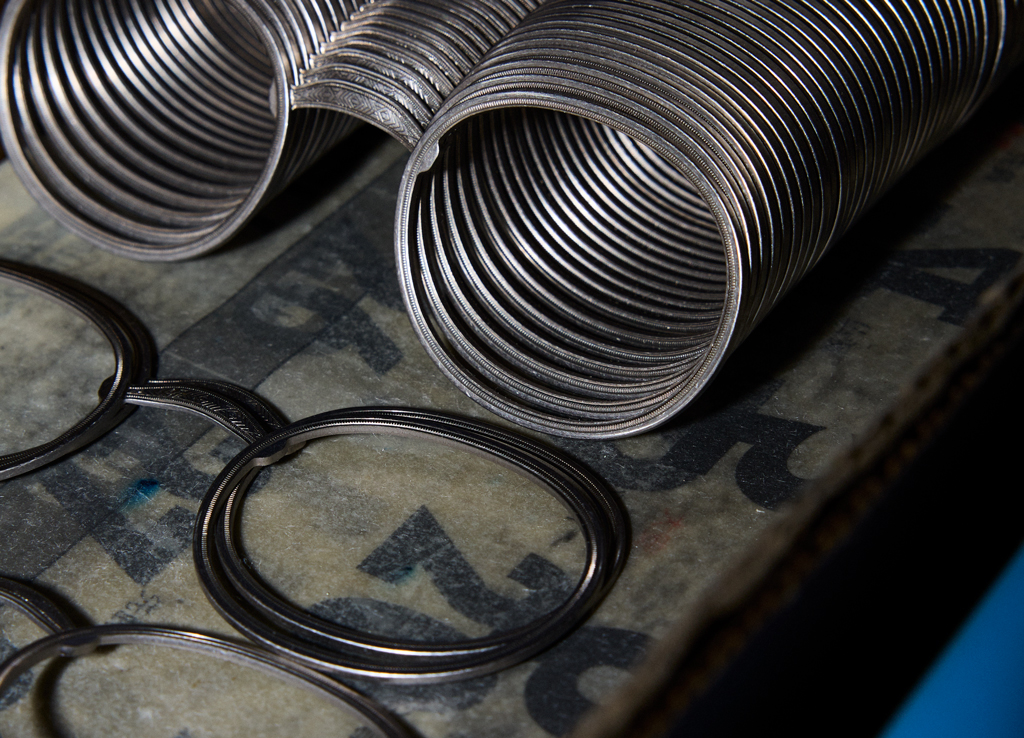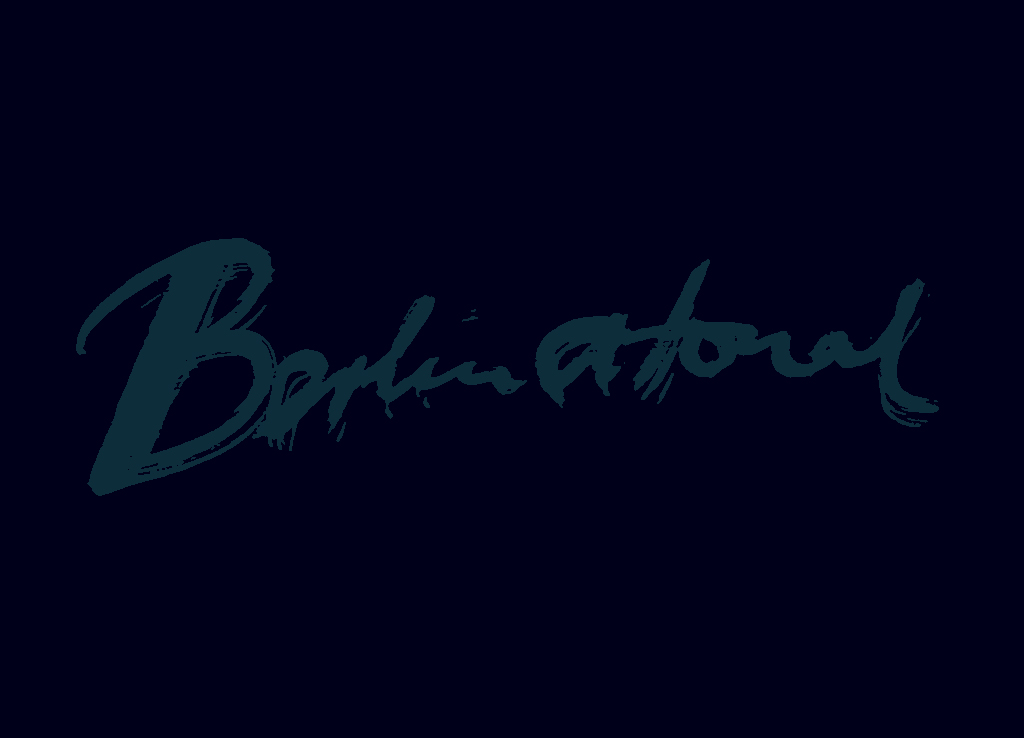
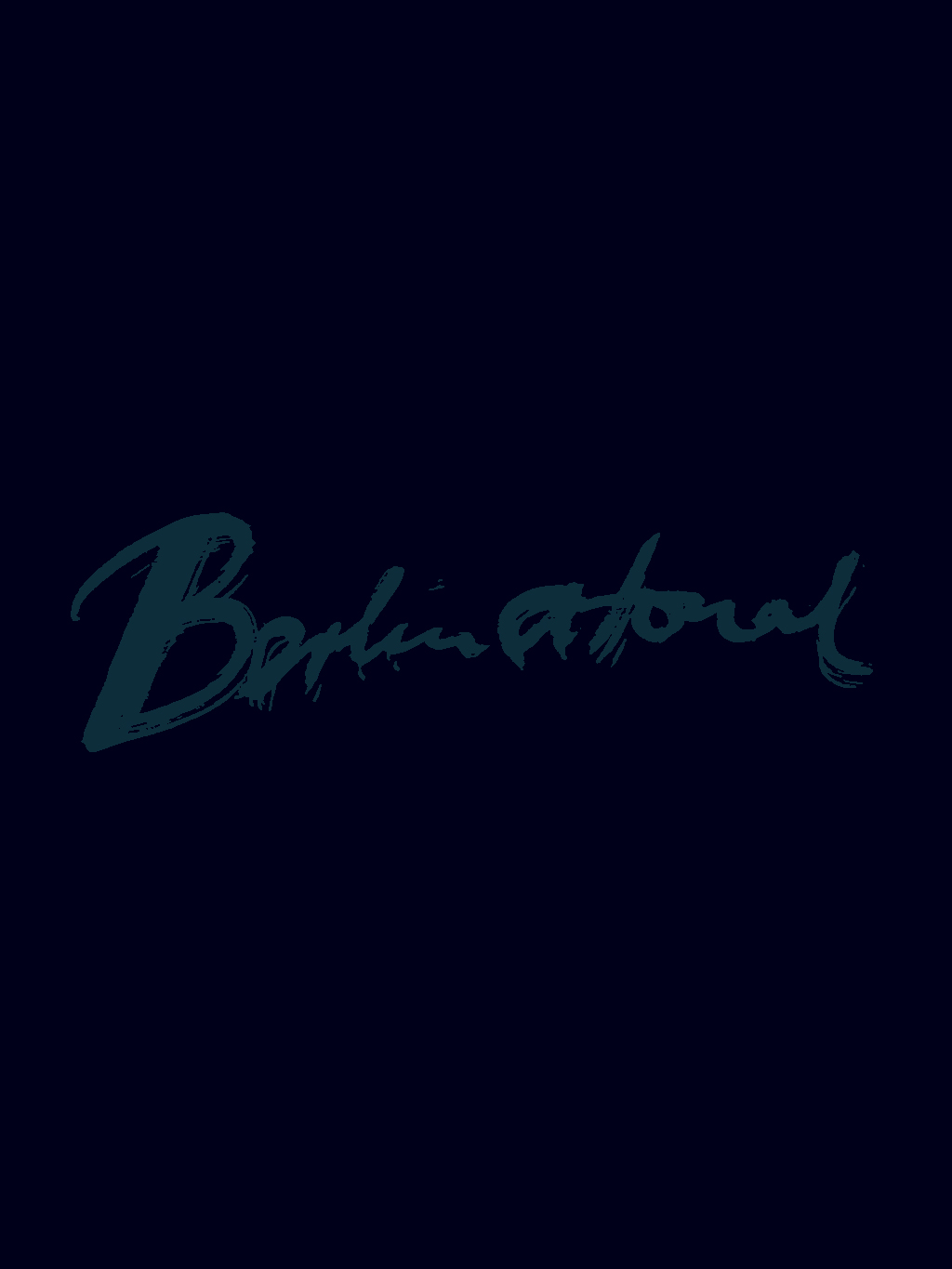
CULTURE 2023.11.24
Conversation with Atonal Curators
Harry Glass + Laurens von Oswald
Photo Helge Mundt, Frankie Casillo, Mayra Wallraff
Interview & Text Hiroyoshi Tomite
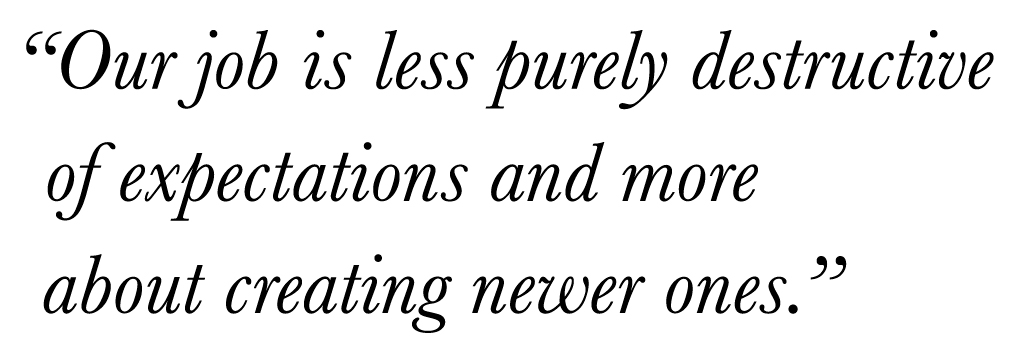
「予見」に満ちたこの街で、
現実を更新していく
ー出演者の顔ぶれは国籍や人種・性別を問わず多彩でした。長年開催される祭典としての役割と、実験の場としてアンダーグラウンドシーンの音楽を世界に発信する役割の2つを意識していたように見受けられました。狙いはありましたか?
ベルリンそのものが多様性に富んでいて、アイデンティティを限定しません。私たちは幸運にもここを拠点とし、街そのものが発散する温度感の一部をフェスティバルを通じて“調理”することができます。このエネルギーの一部を取り込んで、アーティストが聴衆の期待を超えた新しいクリエイションをするきっかけとなる場にしたい。世界や時代の流れをいち早く掴める「予見」に満ちたこの街で、フェスティバルを通じて現実を更新していく。そうすることで、ある種の「エネルギー保存の法則」が守られていくのだと思います。
ーベルリンへの観光客も含めた来場者と同様に、私自身コロナ以降のベルリン本来の底力に魅了されました。週を跨いだ平日に行ったUniversal Metabolismを含めて今年を過去最大規模の10日間の開催にしたのはなぜですか?
計画段階で沢山のアイデアが浮かんできました。従来のフェスティバルを超えて、特別なものに変えたいということ。2つの週末を跨ぎ、毎日3000人の来場者とともに会場に紛れ込んで、我を忘れる感覚を想起できたら素晴らしいんじゃないかということ。アーティストと一対一で対峙するような没入感があるといいんじゃないか。「このすべてのアイデアを達成できたらクールだろう!」とか。そのようにアイデアが膨みました。結果として純粋なフェスティバルというより、会場をアスレチックのように体験してもらう機会をつくれた気がしています。
ーUniversal Metabolismでのアートインスタレーションやサウンドやビデオ作品を展示アーティストの中にはアンチキャピタリズム的なイデオロギーや政治性を強くはらんだ作家も含まれました。全体を通してコマーシャリズムとは距離を置いた作品を集めた意図はどこにありますか?
オーガナイザーやキュレーターという立場において、私たちの個人的な政治的意見を表明することは、観客に思想の共感を強いることにすらなりかねません。そもそも関心を引かないでしょう。ただその一方で、私たち個人よりも優れた芸術というものや作品を通じて発せられる“ヴォイス”を持っている人たちの手によって、“時代性”や“社会”を明らかにできるプラットフォームを提供したいと考えています。浮き彫りにしたかったのは、巧妙に深いところに隠された社会構造の成り立ちついての懐疑的な視線です。今回はそれを「普遍的な新陳代謝(Universal Metabolism)」という名前のアートプログラムとして銘打ち、提案しました。この概念は形式的で構造的なものでもあるため、私たちのイベントという場においても再現できたのだと思います。
ー個人的に印象に残ったパフォーマンスはありますか?
フェスティバルの出演者が200人を超えたことを考えると、特筆すべきアーティストを選ぶのは、不公平な気がします! それでもあえてお答えするならば、初日のCaterina Barbieriは結成当初からの仲間で、私たちが探求したいと思っている音楽体験の種類をよく理解してくれていると思いました。それからUKラッパーのBlackhaineとRainy Millerは、より激しく直接的な方法で私たちに挑んでくるのが印象的でした。
¥ØU$UK€ ¥UK1MAT$Uと会ったのは何年も前のことですが、彼はその時点ですでに私たちが探求してきた多くの音楽的アイデアを持っていて、私たちの視野を新しい地平へと広げてくれました。
ーメインステージを張るようなアーティストですら、実験的で時には政治的にもアグレッシブなセットにも感銘を受けました。このような特徴を生み出したアトナルには、どのような歴史的背景があると思いますか?
アトナルの自由で商業的でない環境は、アーティストの自由で商業的でない衝動を解放するチャンスをつくることができます。もし私たちが観客に不快な感情を呼び起こす可能性を許容する余白があれば、彼らは解放され、作家である自身すらをも驚かせる表現を可能にします。ーそれは政治、音楽、芸術表現、あるいはあなたが指摘したように純粋な感情、攻撃性、解放の領域の話なのかもしれません。こうした「衝動」の度合いが芸術的な価値や内容そのものよりも重要であった80年代初期の状況から、私たちが学んだ教訓だと思います。今日ではもう少し文脈やニュアンスが異なり、アーティストはクレバーになる必要があります。単なる衝撃だけではもはや十分ではないことが多く、人々を感動させなければならない時代なので。
ー80年代ディミトリ・ヘーゲマン(Atonal創始者)の時代から受け継がれてきたアトナルの哲学とモットーについて教えてください。一方で、2013年の新体制以降、そしてコロナ以降にアップデートされたことは何だと思いますか?
私たちが当時そこにいたわけではないので、歴史の証言者として語ることはできません。しかし、おそらく彼らにとってのプロジェクトは、聴衆のそれまでの期待を裏切り、ショックを与えることだったのだろうと考えます。それは大きな「NO!」を突きつけることではなく、新しく、興味をそそる方法で僅かでも「yes」と言う方が面白いと伝えることなのだと。私たちの仕事は、純粋な人々の期待を裏切ることではなく、新しい期待を生み出すことなのです。
ー成功の一方で私の周りのベルリン在住の友人には、今年のチケットの値上げ(一晩あたり前年比数十ユーロ近い値上げを余儀なくされた背景)に不満を持って来場を諦めた人がたくさんいました。その上で来年の展望と抱負はありますか?
これは厳しい質問です…。舞台裏の話にはなりますが、ベルリン助成団体からの支援をある時点で「私たちを支援することはリスクが高すぎる、あるいは望ましくない」という理由で失いました。それは、私たちオーガナイザー自身が立ち上げた実験に資金を提供するという重荷を背負うことになります。当然のことながら、一部はチケット代の値上げという形で観客にも負担を強いらざるを得ませんでした。
ところで文化における価値は何によって決まるのでしょう? サッカーの1試合の値段がXで、バレエの公演の値段がYだとしたら、アトナルの夜の値段はいくらになるのでしょうか。主に人々の憶測によって決まるのでしょうか。それとも「適切な」値段を決めることのできる計算式があるのでしょうか。
我々からすれば簡単なことで、できるだけ損をしないようにする必要があります。外から見れば、これは貪欲で野心的すぎるように見えたかもしれません。ただ誤解してほしくないのは、アトナルは決して商業的なものではなく、実験をサポートするためだけに存在しているのだと言えます。
ー来年の開催に向けて、日本の読者にメッセージをいただければ幸いです。
日本の文化やアーティスト、そして一緒に働く日本人スタッフやフェスティバルを訪れる日本人の観客から協力的で前向きな貢献からインスピレーションを受けています。2017年に東京で小さなフェスティバルの開催を試みましたが、今後も日本でもっと色々なことをやりたい。そういう機会を設けることは重要です。日本人の皆さんには、ぜひ私たちの活動を応援しに来ていただきたいですし、思い出に残るパワフルな体験になるよう、最善を尽くすことを約束します。
Harry Glass + Laurens von Oswald
1. The lineup was diverse, domestic and international. Still, it was aware of Berlin's role as a
festival of the underground and left-field scene and its role in presenting itself to the world.
How do you look back on this year's festival?
Berlin itself is diverse, domestic and international. We are lucky to be based here and to be able to cook with some of the temperature that the city itself emanates. We try to take some of this energy and turn it into new experiences that can continue to fulfil the prophecy of this city to be a catalyst for artists to create and challenge expectations. In this way the principle of the conservation of energy is upheld.
2. I felt that myself and the visitors, including tourists, were fascinated by the original underlying power of Berlin. Why did you make the festival a 10-day event this year, including Universal Metabolism?
We wanted to do something bigger because there were so many ideas that came to us in the planning. We wanted to create different modes of experience in one ‘total thing’ - we thought - wouldn’t it be cool if during one festival you could be losing yourself in a crowd with 3.000 people, but also see a performance unfold with just you and the performer. Imagine if that could all happen in one space, in one two-week period. This would be cool. We are not sure if we could achieve this goal but this was our idea! There is also something athletic about what we ask from our visitors, this is what distinguishes it from pure recreation.
3. What was your intention in bringing together artists who create art installations and contemporary sound and video works in their approach to capitalism?
We are festival organisers and curators, our own personal political opinions are not the most relevant or interesting to people and we do not want to force our opinions onto anyone or set a ‘prescribed’ way of thinking. On the other hand, we want to provide platforms for people who are better than us at revealing aspects of modernity with their art and vision and voice. One consistent thing we want to continue to uncover are these deeper and often hidden processes of transference, how does one person's labour contribute to powering something somewhere else. These processes - what we could call the social and natural world’s ‘universal metabolism’ - is also something formal, something structural and therefore something that we can also try and replicate with the form our events, we want people to interact with artwork and each other in different ways, ways that generate their own ways of seeing and feeling.
4. What are some of the most memorable acts you have seen yourself this year?
It always feels a bit unfair to pick out just a few acts to mention, given that over 200 people participated in the festival! But we can mention a few people that we have worked with for a long time, Caterina Barbieri has been with us since the beginning and understands exactly the kinds of musical experiences we are interested in exploring, Yousuke Yukimatsu we first met many years ago and he came to us already with many musical ideas that we had explored, he always brings something special to us and expands our horizons, Blackhaine and Rainy Miller are always challenging us to do things in a more intense and direct way and this results in very powerful performances.
From my personal perspective, I saw 3 main stage acts on the first day of W1 (Caterina
Barbieri + Space Afrika with MFO, Rainy Miller, Laurel Halo) On UM, I was impressed by
'The Thief 's Journal'. Best of all was W2’s ¥ØU$UK€ ¥UK1MAT$U non-electro performance that took my breath away.
5. Despite being on the main stage, I was also impressed by the artists' political stance and
experimental and aggressive sets. What historical background do you think Atonal has in
creating these characteristics?
Unrestrained and uncommercial settings can allow the unrestrained and uncommercial impulses of artists to be released. If we give people the license to be unpopular or to be uncomfortable, they can be liberated and they can surprise themselves by what comes out. This could be in the realm of politics, music, artistic expression or - as you say - pure emotion, aggression or release. I think this is a lesson we have learnt from the context that surrounded the earlier editions of the festival, in the 80s, when these surrounding impulses were perhaps even more important than the artistic content itself. Now it's a bit more nuanced. We need to move people but often mere shock is not enough, it needs to be more clever.
6. With Universal Metabolism, I sensed a resistance against the inability of any art form to
escape capitalist values in the works exhibited and the artists who participated in the show.
What do you think is the significance of expressing such a struggle? Also, what is the
significance of producing this kind of sculptural artwork, which has become more significant
in the context of atonal art since Corona?
To the extent that a collection of letters is a word, they need to engage with a language that both delimits it but also is the condition of its possibility. Similarly, any publicly interpretable act needs to be intelligible against its social and economic context. You could say this is a limit, you could also say this is what makes it possible. But this is quite obvious and not something we need to go on about.
7. Please tell us about the philosophy and motto of Berlin Atonal, which has been handed
down since the time of Dimitri Hegemann. On the other hand, what do you think has been
updated since the new organization in 2013 and after Corona?
We weren’t there in the old days so we can only speak about that as a kind of historian. But perhaps for them the project was to shock people out of old expectations. For us the goalposts have shifted slightly, a big “No!” is less interesting than saying “Yes” in smaller, newer, more intriguing ways. Our job is less purely destructive of expectations and more about creating newer ones.
9. On the other hand, I have been surrounded by many long-time Berliners who are unhappy
with the price increase and have given up coming to the show. What are your prospects and
ambitions for next year?
That is a hard one. At some point we have lost the support of the city who through supporting us was too risky or undesirable. It means that we as organisers must carry the burden of funding the experiments that we set up, naturally this means that some of this also goes to the audience in the form of higher ticket prices. What dictates value in culture? If a football match costs X and and the ballet costs Y what should a night of Berlin Atonal cost, and is this dictated mainly by peoples already existing speculations or is there a kind of calculus that can determine an ‘appropriate’ price. From our side it’s easy, we need to try and lose as little money as we can. From the outside perspective this may appear greedy or over ambitious, but the festival is not commercial and it exists only to support the experiments that it puts on show.
10. I would be happy if you could message our Japanese readers for the next edition of Berlin Atonal.
We are inspired by Japan, Japanese culture, Japanese artists and the supportive and positive contributions from the Japanese staff that we work with and the Japanese guests that come to the festival. We tried to do a small festival edition in Tokyo in 2017 and we would love to do more things in Japan. It is important to us. We encourage all Japanese people to come and support what we do and we promise to try and do our best to make it a memorable and powerful experience.

